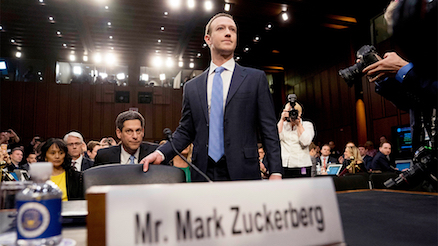Instead of a carte blanche immunity, Facebook CEO Mark Zuckerberg said “platforms should be required to demonstrate that they have systems in place for identifying unlawful content and removing it”. Urging US lawmakers, Zuckerberg asked for reforms to the rules for online platforms’ liability to require systems for removal of unlawful content.
The proposal that was outlined in testimony prepared for a Congressional hearing detailed the social media giant’s idea for reforming a law known as Section 230 which protects internet services from liability for content posted by others.
The comments come amid growing international pressure to hold online platforms accountable for misinformation, incitements to violence, and abusive content.
Zuckerberg said in his written remarks released by a House of Representatives panel that “people of all political persuasions want to know that companies are taking responsibility for combatting unlawful content and activity on their platforms”.
The Facebook chief held that Congress “should consider making platforms’ intermediary liability protection for certain types of unlawful content conditional on companies’ ability to meet best practices to combat the spread of this content”.
Instead of being given blanket immunity, Zuckerberg said “platforms should be required to demonstrate that they have systems in place for identifying unlawful content and removing it.”
He maintained that online services should not be held liable for “if a particular piece of content evades its detection,” saying it is not feasible for platforms with billions of posts per day, but “should be required to have adequate systems in place.”
Zuckerberg said the requirements should be “proportionate to platform size and set by a third-party” so that the biggest services don’t have an advantage over new startups”.
The comments precede what is expected to be another contentious hearing with the CEOs of Facebook, Google and Twitter, appearing remotely, to address the problems on online disinformation.







